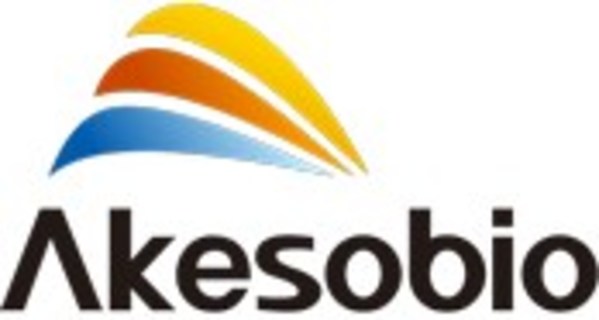Akeso Publishes Preclinical Results of PD-1/CD73 Bi-specific Antibody(AK131)at the American Association for Cancer Research (AACR) 2022 Annual Meeting

HONG KONG,April 14,2022 -- Akeso,Inc. (9926.HK) ( "Akeso" ),a China-based biopharmaceutical company focusing on the development and commercialization of innovative therapeutic antibodies for Oncology & Immunology,announced the publication of preclinical results of its PD-1/CD73 bi-specific antibody (AK131) at the American Association for Cancer Research (AACR) Annual Meeting 2022. AK131 has demonstrated to have potent in-vitro and in-vivo anti-tumor activities.
Abstract: AK131,an anti-PD1/CD73 bispecific antibody for cancer immune therapy
https://www.abstractsonline.com/pp8/#!/10517/presentation/17745
AK131 is a bi-specific antibody derived from Penpulimab (Akeso's marketed PD-1 antibody ) and AK119 (Akeso's CD73 antibody in clinical stage). AK119 is a dual mechanism antibody (2021 SITC poster #750) that both blocks the generation of adenosine and stimulates antigen specific B cell activation. Adenosine is a key immune suppressive molecule contributing to the resistance of PD-1 antibody therapy. Both CD73 and PD-1 are with high expression in the tumor microenvironment. Moreover,a growing body of literature evidence supports an important role of B cells in anit-tumor immunity. Thus the company developed a bi-specific PD-1/CD73 antibody with the capacity to relieve immune checkpoint control of T cells,activate B cells,and eliminate immune suppression by adenosine,for immune therapy of cancer.
The results and observations in AK131's preclinical study support the development of AK131 as an anti-tumor agent in the clinic:
AK131 effectively bound to human PD-1 and CD73 with high affinity. The interaction between PD-1 and its ligand PD-L1 was blocked by AK131 in reporter gene assay.
In cellular assays,AK131 effectively promoted the secretion of IFN-γ and IL-2 by T cells in co-culture of PBMCs and Raji-PDL1 cells.
Moreover,AK131 inhibited CD73 enzymatic activity and induced endocytosis of CD73. AK131 enhanced the expression of CD69,CD83,HLA-DR and IgM which are markers of B cell activation in an adenosine-independent manner.
In in-vivo assay,AK131 successfully inhibited tumor growth in C57BL/6-hPD1/hPDL1/hCD73 transgenic miceMC38-hPDL1-hCD73 tumor syngeneic model.
Reference
[1] Huang S,Apasov S,Koshiba M,Sitkovsky M. Role of A2a extracellular adenosine receptor-mediated signaling in adenosine-mediated inhibition of T-cell activation and expansion. Blood. 1997; 90:1600-10.
[2] [2] Novitskiy SV,Ryzhov S,Zaynagetdinov R,Goldstein AE,Huang Y,Tikhomirov OY,Blackburn MR,Biaggioni I,Carbone DP,Feoktistov I,et al. Adenosine receptors in regulation of dendritic cell differentiation and function. Blood. 2008; 112:1822-31.

View original content to download multimedia:https://www.prnewswire.com/news-releases/akeso-publishes-preclinical-results-of-pd-1cd73-bi-specific-antibodyak131at-the-american-association-for-cancer-research-aacr-2022-annual-meeting-301525606.html